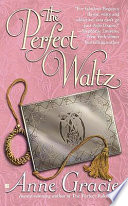
Group of fops including Sir Lumley feigning fashionable wounds
Sir Lumley St. George Skeffington, the 2nd Baronet, was a nobleman, playright, and notable fop who was part of a cadre of eccentrics during the Regency. His impeccable reputation as a literary and dramatist is perhaps only overshadowed by his incredible depth of character, shown both by his kindness and sacrifices. We may speculate as to why this well known gentleman never married, and indeed it may make a good inspiration for a character, but all evidence was he was a man devoted to his passions and convictions at the expense of his family line (or perhaps, because of it).
Timbs, J. (1875). English Eccentrics and Eccentricities. United Kingdom: Chatto and Windus.
His obituary added in some additional details:
The Gentleman’s Magazine. (1851). United Kingdom: F. Jefferies.
We have lots of posts sharing other eccentrics, characters, villains, and people of the Regency. You can find them by searching Regency Men, Regency Women of Character, and Regency Villains.
A Regency Reader who recently completed our annual survey (thank you, Reader!) requested learning more about some of the less famous Regency figures. The survey will be still up for another week, if you would like to share your 2025 requests or feel free to drop comments below!









